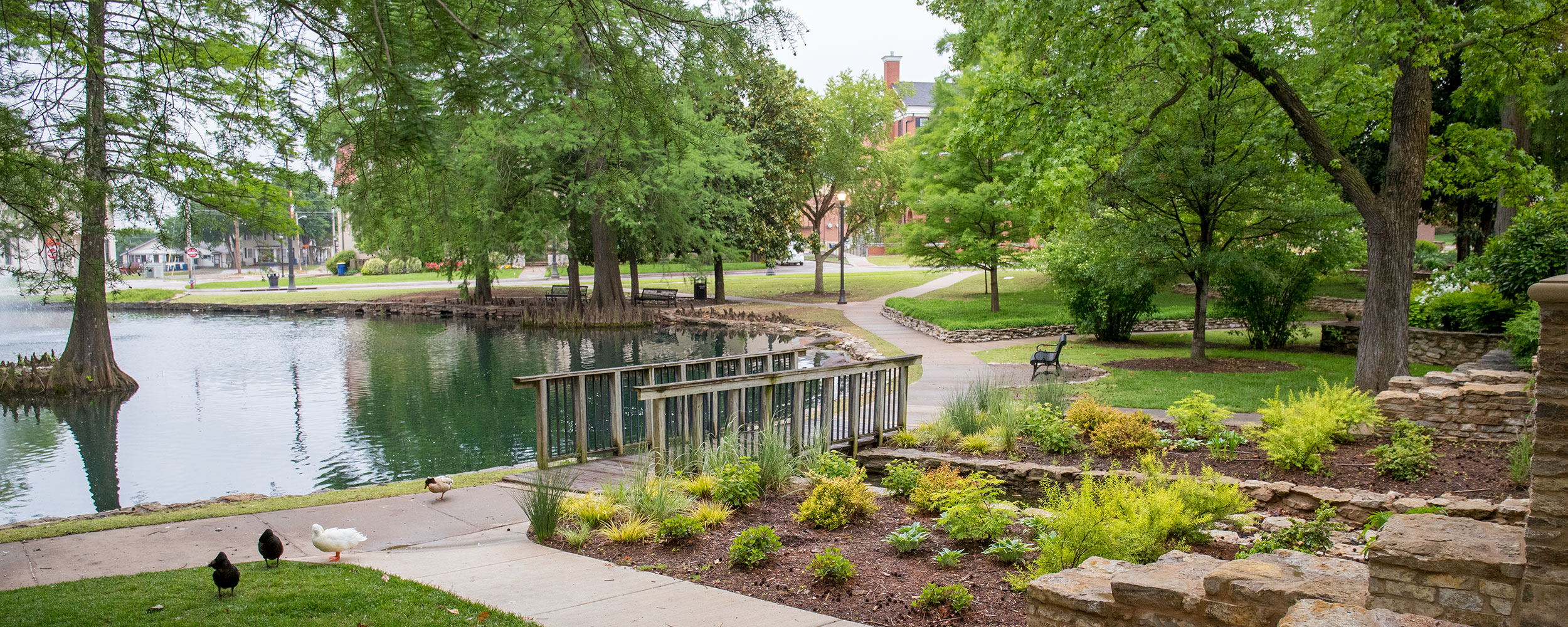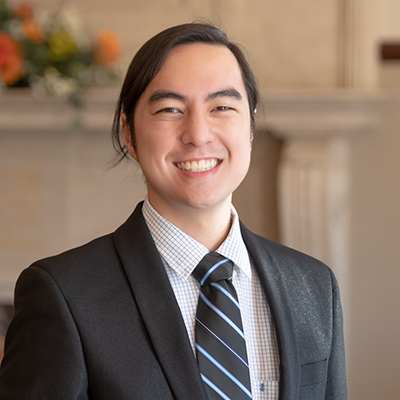
Alumni Feature: Lawrence Richardson
Thursday, April 30, 2020
Meet Lawrence Richardson, licensed professional counselor at Grand Lake Mental Health in Stillwater. He graduated from Oklahoma State University in 2016 with a master's in mental health counseling.
 With experience providing career advice to students at the University of Central Oklahoma
and OSU, Richardson brings much to the table in his job as mental health counselor
at Grand Lake Mental Health in Stillwater. He counsels adults who experience a variety
of mental health and substance use issues.
With experience providing career advice to students at the University of Central Oklahoma
and OSU, Richardson brings much to the table in his job as mental health counselor
at Grand Lake Mental Health in Stillwater. He counsels adults who experience a variety
of mental health and substance use issues.
What do you find fulfilling about your work?
From exploring personal issues to professional interests, having the opportunity to
hear people’s stories about their triumphs and tribulations is one of the most fulfilling
things about my work. We live in a world where it is difficult, if not punishable
by shame and humiliation, to be vulnerable and authentic. By coming into a space that
facilitates and supports vulnerability and authenticity, I am simply honored and humbled
as my clientele choose to tell me their stories.
How did OSU prepare you for what you do now?
The practicum and internship courses were the courses that helped me develop my counseling
skills. Through supervision and guidance with faculty members, doctoral students,
and practicing clinicians, they really supported me as I explored my own personal
and professional identity as a counselor. There are a variety of tools at our disposal,
but the tool that we always use in counseling is ourselves. The practicum and internship
courses allowed me to analyze my skills as a counselor and hone them through introspection.
Was there an experience or inspiration behind choosing your career path?
There was no one “ah-ha” moment for me. My initial career goal was to become an academic
in psychological science. When that plan did not pan out, I had a culmination of personal
and professional experiences that led me to the counseling profession. Fresh out of
undergrad, my first job was assisting people in applying for disability benefits.
My next position required me to advocate for and support people in recovery from addiction.
After three years in the workforce, I realized I wanted and needed to go deeper into
the trenches of the human experience. Looking at my professional experiences and career
interests, applying to graduate school and becoming a professional counselor became
the next step.
You've held many leadership positions with the National Board for Certified Counselors.
What have been some of your favorite experiences?
My most favorite experience of leadership and professional engagement is becoming
a Minority Mental Health Fellow from the National Board of Certified Counselors Foundation.
Networking with minority-identified professional counselors and counselor educators
was very empowering, knowing I am not alone in my struggles as a counselor-in-training.
Building long-lasting relationships with people across the world has had a positive
impact for me.
Why is being involved in professional organizations important?
Maintaining engagement with professional organizations promotes awareness of current
issues affecting the profession and calls for advocacy when public policies affect
our scope or practice negatively. We need to use our voices to tell our stories of
what professional counselors can and will do for the public. We also need to work
towards shifting the stigma and perceptions of mental health support. Leadership roles
within professional organizations will put us on the front lines of destigmatizing
counseling in various communities, advocating for effective policies in reaching out
to more people in need, and maintaining the well-being of those we serve.
What advice do you have for OSU students and future professionals?
A social scientist and social worker named Brené Brown said to “Lean into the discomfort.”
Whenever we try to sidestep uneasiness or avoid things that make us uncomfortable,
we have a natural tendency to avoid or ignore it. However, that moment of discomfort
is critical in developing awareness and resiliency. The more we can practice leaning
into the discomfort, the more we can have opportunities to strengthen our resiliency
to unpleasant situations. By honing the skills of resiliency, we can learn how to
adapt and weather many challenges in life.
